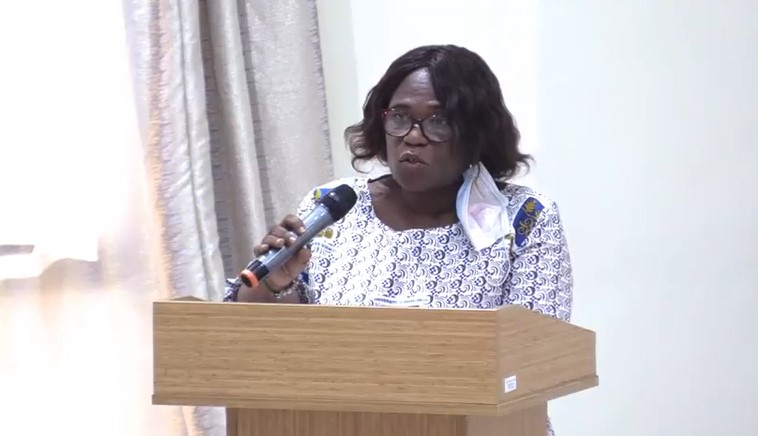An agriculturist and a lecturer of the University of Ghana , Prof. Irene Egyir, has charged private sectors to widen the scope of Akufo-Addo’s flagship programme – Planting for Food and Jobs – by contributing to the growth of other crop enterprises of the agricultural sector, such as root tubers and horticultural crops aside rice and maize industry towards the attainment of sustainable agri-food system.
Speaking in the last panel discussion at the 72nd New Year School and Conference Event on the theme: “Sustainable Food Production Systems and Resilient Agricultural Practices”, Prof Irene Egyir touched on the actionable measures for mitigating the effects of COVID-19 on agricultural production. Ensuring that agriculture continues to contribute to economic development, she mentioned that attention must be given to rubber production in the country.
Recounting the effects of COVID- 19 on agri-food systems, she pointed out that there is wide range of unexplored agricultural ventures which when tapped in could prevent the over- reliance on some particular food sources. She encouraged participants to practice backyard farming particularly in times of crisis to ensure continuous availability of food.
Prof. Egyir further noted that some fruits, vegetables and cash crops have been given little attention, a situation which is affecting sustainability of food, leading to food shortages and price hikes on the market. She, therefore, called for actionable measures to ensure robust food production and resilient agricultural practices in the country and urged stakeholders in the agricultural sector to explore other food sources to diversify agribusiness in the country.
From the lessons learnt from COVID-19 and East Africa Locusts, an Agribusiness Entrepreneur, Nana Adjoa Sifa Amponsah suggested that the advisory services to farmers must be improved to equip smallholder farmers with innovative agricultural practices suitable to our Ghanaian environment. She also mentioned that the youth must sensitised to appreciate the viability of agriculture as a source of employment and livelihoods and to encourage the youth with higher levels of education other than basic education to go into agriculture for their livelihoods.
She added that the needed financial support must be provided to youth to participate in modern agriculture practices, and agricultural enterprises along the value chain, including off-farm activities such as handling, processing, packaging and transportation.
The Sustainable Development Goal Agenda requires that nations including Ghana ensure sustainable food production systems and implement resilient agricultural practices that increase productivity and production, that help maintain ecosystems, that strengthen capacity for adaptation to climate change, extreme weather, drought, flooding and other disasters and that progressively improve land and soil quality. This entails halving per capita global food waste at the retail and consumer levels and reducing food losses along production and supply chains, including post-harvest losses by 2030.
Read also : Ghana to continue on its path of Sustainable Progress and Prosperity – Prez Akufo-Addo



















